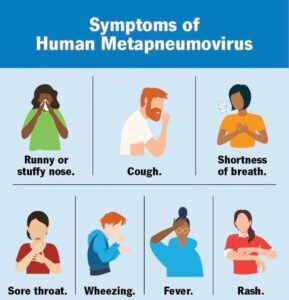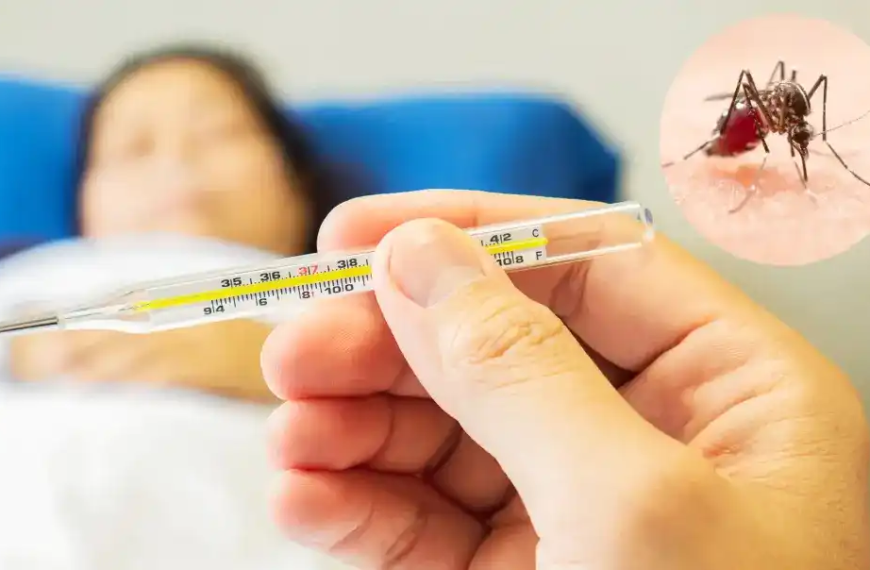
Protecting Your Family from HMPV: Symptoms, Prevention, and Treatment
As the cold and flu season approaches, many parents and caregivers are on high alert, trying to keep their families healthy and safe. One virus that is becoming an increasing concern is Human Metapneumovirus (HMPV). While it may not be as widely known as the flu or RSV (respiratory syncytial virus), HMPV can still cause serious respiratory illness, especially in children, the elderly, and those with weakened immune systems.
In this blog, we will cover the symptoms of HMPV, how to prevent it, and the available treatment options to help protect your family.
What is HMPV?
Human Metapneumovirus (HMPV) is a respiratory virus that primarily infects the airways. It is similar to other viruses like influenza and RSV, often causing symptoms such as cough, congestion, and fever. HMPV typically circulates during the fall and winter months, though it can spread year-round.
The virus is highly contagious and can be spread through respiratory droplets when an infected person coughs, sneezes, or talks. It can also be contracted by touching contaminated surfaces and then touching the face, especially the eyes, nose, or mouth.
Common Symptoms of HMPV
HMPV can present with a variety of respiratory symptoms, which can range from mild to severe. Common symptoms include:
- Cough (which can be dry or productive)
- Runny nose or nasal congestion
- Fever
- Sore throat
- Wheezing or difficulty breathing
- Fatigue and body aches
- Shortness of breath (in severe cases)
Most people recover from HMPV with rest and supportive care, but the virus can lead to serious complications such as pneumonia, especially in young children, older adults, and individuals with weakened immune systems. If your family members experience severe symptoms, such as difficulty breathing, persistent fever, or dehydration, it is crucial to seek medical attention promptly.
Preventing HMPV Infections
While there’s no specific vaccine for HMPV, there are several effective ways to prevent the spread of the virus and reduce your family’s risk of infection.
1. Practice Good Hygiene
Teaching your children and family members the importance of good hygiene is the first line of defense against HMPV. Here are some simple yet powerful practices to follow:
- Handwashing: Wash hands frequently with soap and water for at least 20 seconds, especially after coughing, sneezing, or touching surfaces in public spaces.
- Hand sanitizers: If soap and water aren’t available, use a hand sanitizer with at least 60% alcohol to kill germs.
- Cover coughs and sneezes: Encourage your family to cover their mouth and nose with a tissue or their elbow when coughing or sneezing.
- Avoid touching the face: This is one of the easiest ways germs can enter the body. Teach your children to avoid touching their face, especially their eyes, nose, and mouth.
2. Disinfect High-Touch Surfaces
Viruses like HMPV can survive on surfaces for hours or even days. To reduce the chance of infection, regularly disinfect commonly touched surfaces such as:
- Door handles
- Light switches
- Cellphones
- Remote controls
- Kitchen counters
Use an effective disinfectant to wipe down surfaces, especially if someone in your home is showing symptoms of a respiratory illness.
3. Avoid Close Contact with Sick Individuals
If someone in your family or community is sick, try to limit close contact. Keep children home from school or daycare if they are sick, and stay home yourself if you’re showing symptoms of illness. HMPV spreads easily through close contact, so reducing exposure can help keep the rest of your family healthy.
4. Strengthen the Immune System
A healthy immune system is better equipped to fight off infections like HMPV. Promote good overall health with:
- A balanced diet rich in fruits, vegetables, and whole grains
- Regular exercise
- Adequate sleep (aim for at least 7-8 hours a night for adults, more for children)
- Staying hydrated with plenty of water
5. Keep the Air Clean
Indoor air can be a breeding ground for viruses. Consider using a high-efficiency particulate air (HEPA) filter to remove airborne viruses and bacteria. Ensure that your home is well-ventilated to reduce the concentration of harmful particles in the air.
Treatment for HMPV
Currently, there is no specific antiviral treatment for HMPV. Treatment mainly focuses on relieving symptoms and helping the body recover. Here are some general treatment strategies for managing HMPV infections:
1. Rest and Hydration
Make sure your family gets plenty of rest to support the body’s immune response. Staying hydrated is also essential, especially if fever or coughing is present. Drink plenty of water, herbal teas, or clear broths to prevent dehydration.
2. Over-the-Counter Medications
For mild symptoms, over-the-counter medications such as acetaminophen or ibuprofen can help reduce fever, headaches, and body aches. Nasal saline sprays or decongestants Respiratory infections may help relieve nasal congestion, and a humidifier in the bedroom can ease coughing and help with breathing.
3. Seek Medical Attention for Severe Symptoms
While most cases of HMPV are mild and resolve on their own, severe infections can occur, especially in young children, older adults, or those with underlying health conditions. If your child health is struggling to breathe, has a persistent fever, or shows signs of dehydration (such as a dry mouth or lack of tears), contact a healthcare provider immediately. In some cases, hospitalization and treatments like supplemental oxygen may be necessary.
4. Supportive Care in Severe Cases
For severe cases of HMPV, doctors may recommend oxygen therapy or other treatments to support the respiratory system. In rare cases, antiviral medications or other specialized treatments may be considered based on the patient’s specific needs.
Conclusion
HMPV may not be as well-known as the flu or RSV, but it can still pose a significant health risk, particularly to vulnerable individuals. By practicing good hygiene, taking steps to prevent exposure, and knowing how to manage symptoms, you can help protect your family from this virus. Always stay vigilant during cold and flu season, and seek medical advice if any family member shows signs of severe illness.
With the right prevention and care strategies, you can keep your home healthier and reduce the risk of HMPV spreading through your household. Stay safe, and take proactive steps to safeguard your family’s health!




